Meet the woman who took 51 Ebola orphans into her own home
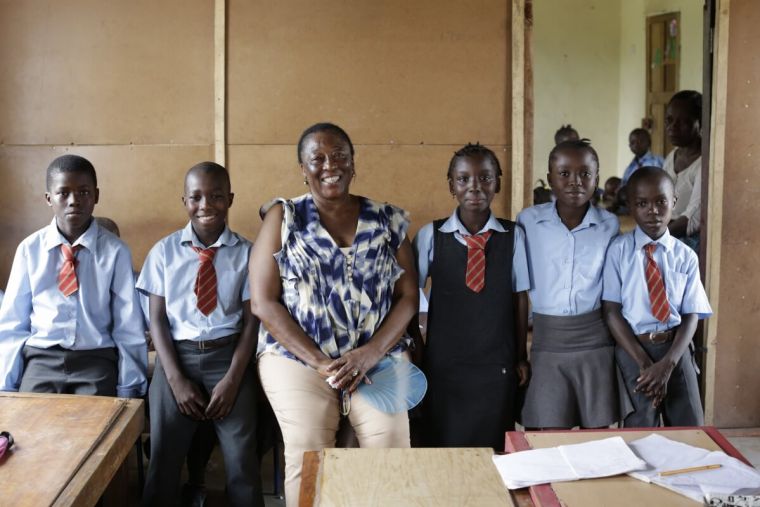
About 20km east of Freetown is an unassuming yet remarkable collection of magnolia buildings. Accessible only via a series of dusty, winding roads that open onto a breathtaking landscape, Heaven Homes houses 51 children who lost their parents to the Ebola virus that has ravaged Sierra Leone over the past year.
When the first case was recorded in the country in June 2014, it was impossible to foresee the scale of devastation the crisis would go on to cause. Over 3,950 people have since died as a result of contracting the virus in Sierra Leone alone. Two more deaths in a northern village this September sparked concern that the epidemic was not yet over, but on 7 November, 42 days since the last recorded case, the country was finally declared Ebola-free.
As Sierra Leone looks to a brighter future, the shadow of Ebola remains. British charity Street Child estimates that over 3,000 Sierra Leonean children have been orphaned by the virus, and at least 12,000 have lost their primary caregiver. In a country wracked by poverty, many of those whose parents died were taken in by relatives or neighbours who were already living hand-to-mouth, but with the stigma attached to such a virulent disease, some were abandoned entirely.
Hannah Kanu has made an extraordinary sacrifice as Sierra Leone seeks to overcome the tragedy of the past year. At 60 years old, she has welcomed 51 orphaned children into her own home.

When we pulled up to the house, it was almost silent – the children were in school, which is just a short walk away and also run by Hannah, the proprietress. Later on, they filled the grounds; shouting hellos, giggling, and running after our car. Built before the Ebola outbreak in 2010, the school now has over 160 pupils, almost a third of whom are orphans. Those 51 are currently living in Hannah's house, but she is having a number of bungalows built nearby where they will live in groups of five along with an 'aunty'.
Her face, usually bright and smiling, clouded over when I asked her to describe the effect Ebola had on the children she now mothers. "It is pitiful to remember," she recalled. "Some of these kids were sleeping at the market place because there was nobody to take care of them. Some of them were sleeping at the cinema halls." Already a respected member of the community because of her school, Hannah was asked by local counsellors linked to Tearfund's partner the Evangelical Fellowship of Sierra Leone if she would take in some orphans from the local area. Soon afterwards, 23 children arrived on her doorstep. The youngest was just three years old.
Aliekanu (12): 'After my mum got sick, there were no family members around.'
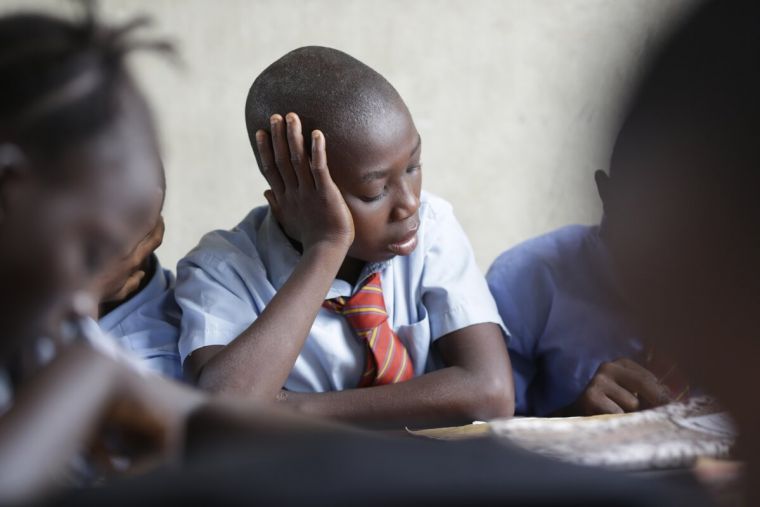
Twelve-year-old Aliekanu's mother fell ill with Ebola late last year, and he cared for her – cleaning up her vomit and fetching her water – until she died. "After my mum got sick, there were no family members around. They were all afraid," he told me. His father was so scared of the virus that he ran away with his youngest son in the middle of the night and later died from Ebola himself. It is thought that the boy is still alive, though Aliekanu has not seen him since.
He started attending the school at Heaven Homes in January, but there was initially no space for him in Hannah's house, so he stayed in the teacher's quarters. Now, he lives in the orphanage and has friends to play with – even one he calls his big brother; they are both from the same area and have bonded over their shared loss. "Sometimes I miss my family and I feel sad," he said, tears streaming down his cheeks. "But my friends encourage me. They are the ones who give me courage."
Ishakorma (10): 'I want to help people just like people are helping me right now.'
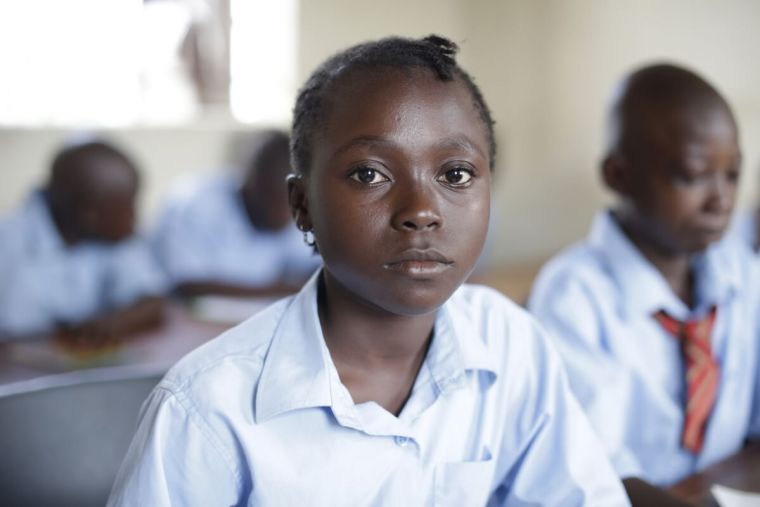
Ten-year-old Ishakorma shared her story in a barely audible whisper. She lost 13 members of her family in just three weeks; 12 of them to Ebola. Her grandmother, unable to feed or care for Isha herself, was forced to bring her to Hannah. Now, she is going to school and is given three meals a day. Evidently traumatised by the past year, there is at least some hope for her future. She wants to be a lawyer, she said, "so I can help people just like people are helping me right now."
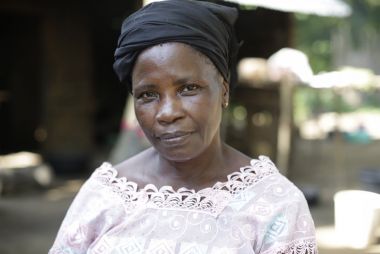
Allekanu and Ishakorma are, sadly, just two among many. Their stories are not unique, nor are they even rare. In Tinkonko, a village in Bo district about three hours drive from Waterloo, I met Tity Gbonbo, a chief who took in seven orphaned children. Widowed by Ebola, she now has to provide for 21 people living in a single house, and is fearful for what the future holds.
"When school reopened, I cried every day because the children would be calling 'Mama, we want books', 'Mama we want our fees'...and I cannot provide it. So I am most of the time in my room crying. My husband used to take care of all of that," she said.
"People have started to help us, but how will they continue? It is just too much...It's really difficult for me to cope with this kind of family, but I trust God for everything."
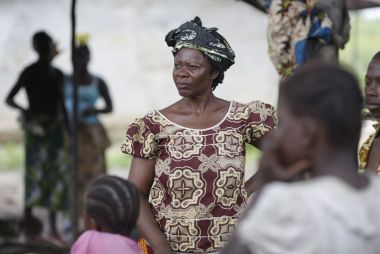
In Moyamba Junction, a poor community of around 5,000 between Freetown and Bo, another widow who survived Ebola has taken in nine orphans. Hawa Blango lost several family members, including two of her young children, to the virus, and is overwhelmed with the weight of responsibility she now carries.
"I worry about how I will continue to look after them," she said. "I just continue to hold on to my faith and pray to God as God has done a very good thing for me...My faith has got stronger."
It is faith that has spurred on Hannah, too, in the face of the Ebola crisis. "I just think we have been used by God to help the kids...most of them are going to church now. Some were Muslim, but now they are going to church. Before they go to sleep they have their prayer meeting. They pray, they sing," she told me.
"I was so glad to help them, because I knew I could do it...it was a joy for me," she added. "It was so sorrowful to see what was going on, especially in the Waterloo area; it was devastated.
"For me, I always say I am not happy because of Ebola, but I believe I have found God...I thank God for the awareness that we need to take care of each other. It was a risk, but I had to take it. I had to. I have no regrets."
Carey Lodge was in Sierra Leone with Tearfund, who have been working with partner organisations in the country throughout the Ebola crisis. All photos: Layton Thompson for Tearfund.











